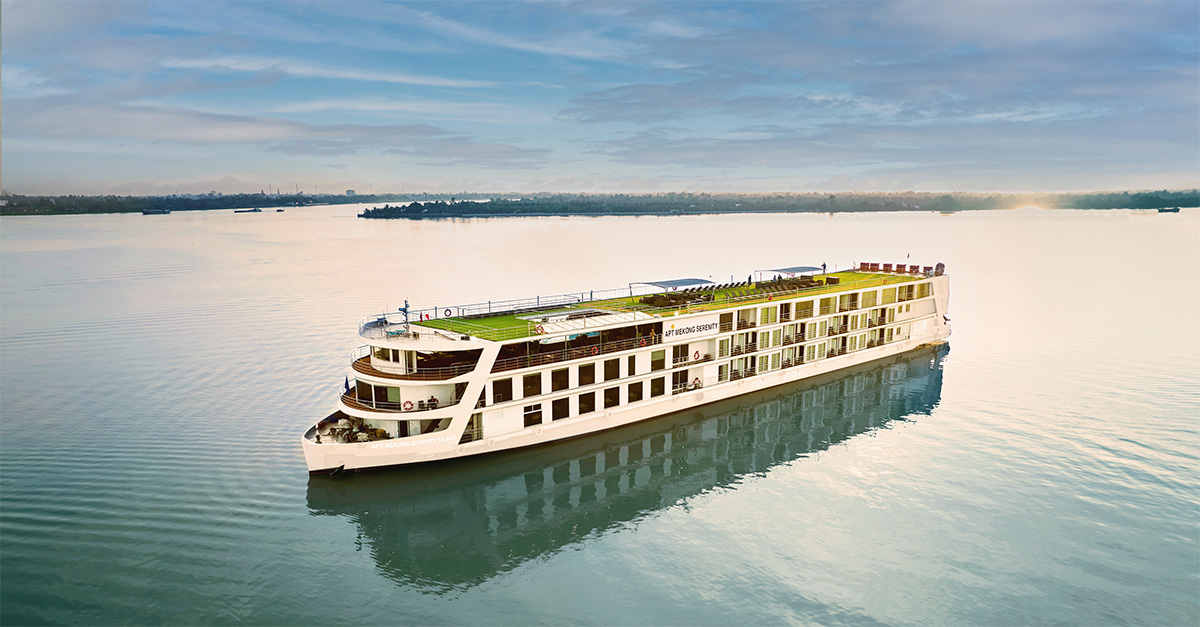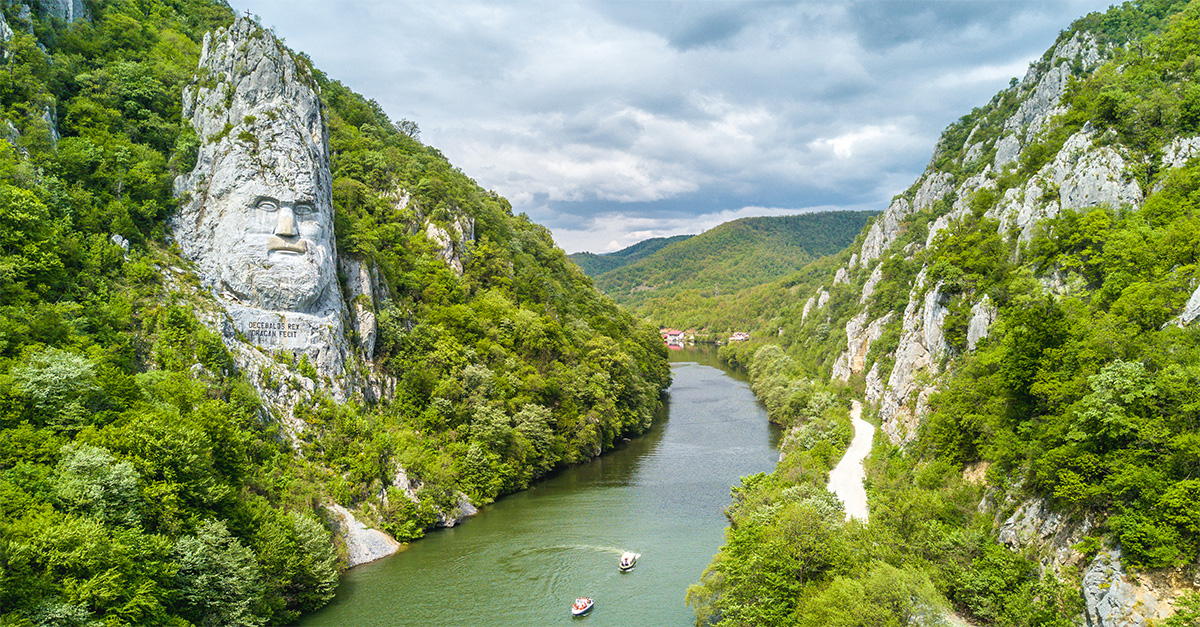If you’ve never sold a touring or adventure holiday before, now’s the time to get to grips with this growing sector, says Katie McGonagle.
Click here to download and save as a PDF.
There’s a lot of pressure to pick up a new skill during lockdown, with endless advice columns and YouTube tutorials piling on the guilt about how you should be using your time to the fullest. But if all that feels a bit overwhelming, how about applying the skills you already have to a new and expanding sector?
The Association of Touring & Adventure Suppliers (Atas) has released the first in a series of training videos for agents who are new to this market on how to improve their knowledge and up their sales.
Atas director Claire Brighton says: “Atas will be bringing our agent members some great new training tools over the coming weeks. These videos are an easy way to learn about the touring and adventure sector, including different styles and sizes of tours, special‑interest focuses such as food and wine, and practical tips on how to identify touring and adventure customers. We hope they will help you now and when we are all back together as an industry again.”
You can watch the New to Touring and New to Adventure videos at facebook.com/ATAStravel, and look out for upcoming training on solo travel, cultural and historical trips, wildlife tours and more.
To help get you started, we’ve canvassed the experts for their advice on breaking into this market.
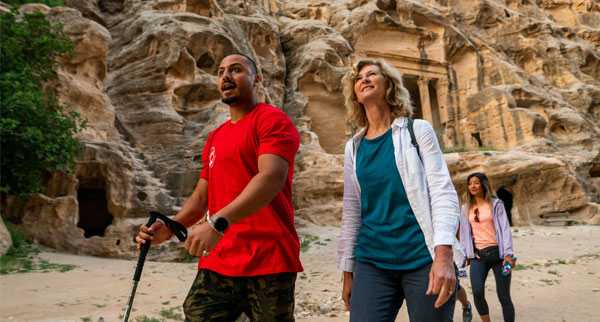
Understand the advantages
There are numerous benefits that set this style of travel apart from any other. Cosmos sales and marketing director Janet Parton says: “Tour operators take care of all the details and initial research for the tour. They book the ground arrangements – hotels, transport, tickets, access to venues, meals and more – and many also book flights. Everything is arranged so guests can focus on having new experiences.”
That’s a huge advantage for travellers of all ages – from time-poor millennials wanting to pack in as much as possible, to retirees looking for a hassle-free trip.
The tour manager is at the heart of that organisation, and anyone who’s been on a group tour knows the guide is the biggest make-or-break factor of a trip. You can’t choose the individual in advance, but you can recommend companies you trust to work with friendly, knowledgeable and experienced people.
“Older clients might find porterage or chauffeur-driven transfers to the airport a bonus, while for solo travellers, it opens up destinations that could feel daunting to explore alone.”
“A great guide can mean the difference between a traveller seeing a destination and really experiencing it,” says G Adventures’ Kerry Anne Naughton. “Our ‘chief experience officers’ offer insider knowledge on the best local places to eat, tips on areas most travellers wouldn’t know to visit, and explanation about local culture.”
There are more specific benefits for certain sectors of your audience – older clients might find porterage or chauffeur-driven transfers to the airport (included with Travelsphere and Titan tours, among others) a bonus, while for solo travellers, it opens up destinations that could feel daunting to explore alone.
Just You managing director Alastair Campbell says: “The great thing about solo holidays is customers will be travelling with like-minded people who share their passion for travel and sense of adventure.”

Challenge the misconceptions
Like someone who declares they don’t like cruise despite never having stepped foot on a ship, clients can come to the touring and adventure market with certain preconceptions. Yet with such a sea change in the sector in recent years – out with umbrella-wielding guides, in with local dining and genuine interaction – it’s time to get rid of any outdated ideas.
“Adventure travel can create a sense of apprehension with agents,” says Joanna Reeve, interim head of industry sales for Intrepid Travel. “Do you have to be super-active? Is accommodation basic? Do I have to know about far-flung parts of the planet that I’ve never heard of? There are tours that include these things, but in essence, adventure travel is about authentic experiences and connections, and certainly doesn’t limit itself to action-packed itineraries. It’s accessible for families, groups of friends or individuals looking to get under the skin of a country.”
Even when an itinerary is packed with incredible experiences, some clients worry they’ll have to stick to a tight schedule. But Kathy Clifford, global head of sales at youth brand Topdeck, says: “Our trips have stacks of free time, so customers can have the trip their way. Any time you see a two-night stop on our itineraries, that means customers have a free day, when their trip leader can give them tips on what to do or see. This is great for customers who might think a group tour is too rigid or who don’t want to be with a group the whole time.”
“With such a sea change in the sector in recent years – out with umbrella-wielding guides, in with local dining and genuine interaction – it’s time to get rid of any outdated ideas.”
For some clients, the sticking point comes as soon as they contemplate getting on a coach, but APT head of sales Jessica Shelton-Agar offers reassurance. “The holiday is about what you experience and see, not just how you travel,” she says. “You can do as much or as little as you want. If you want the included dinner in a city, then join the group; if you have a restaurant you’ve always wanted to try, go for the dinner for two. The choice is yours!”
Speaking of coaches, they’re nothing like the school trips of yesteryear. Shearings Holidays managing director Jane Atkins says: “There are so many USPs – the seat pitch is better than an airline, coaches have free Wi-Fi and entertainment on board, plus there is tea and coffee for European destinations.”
And Parton adds: “With Cosmos and Globus, clients spend less than 20% of their time on a coach, and even that time is well-spent, relaxing and taking in the sights.”
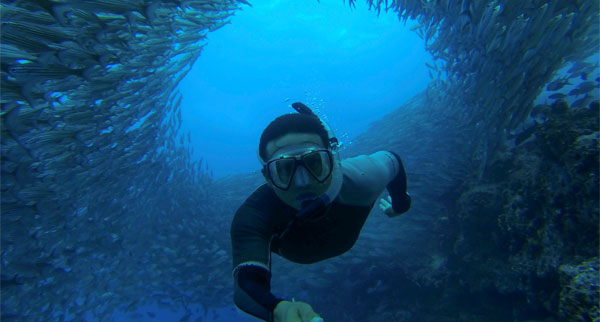
Know the product
There’s no way to become an overnight expert in every itinerary on the market, so choose a few operators that suit your clientele, look at a handful of their tours in‑depth, and build from there.
Rachel Coffey, sales and business development director at Trafalgar and Insight Vacations, says: “Get to know the huge depth and breadth of product and destinations available. Touring goes to every corner of the globe in a host of different ways and budgets. I really believe there is a guided holiday out there for everyone.”
“Touring is the quickest and safest way of selling a multi-centre holiday to a client’s chosen destination without all the hard work, as the tour operator has done the planning already.”
A key selling point is that tours offer a well-researched, tried-and-tested itinerary so you can sell even the most complex destinations by relying on operators’ expertise. Titan’s head of trade sales, Edwina Coppock, says: “Touring really is the quickest and safest way of selling a multi-centre holiday to a client’s chosen destination without all the hard work, as the touring operator has done all the planning already.”
That’s especially true of less-familiar destinations. Ben Ittensohn, head of global sales for Explore, says: “Our BDMs generally tell agents if they’ve not heard of a destination, go to our website and we probably travel there. If you don’t know anything about Ethiopia but you know Explore goes there, call your BDM or our customer service team and ask them about it so you can better sell it to your customer. That’s what we’re there for.”
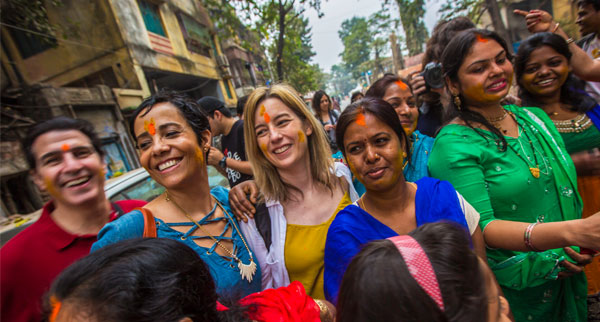
Sell the specifics
Knowing your stuff is all very well, but the next step is translating it into sales. Many operators recommend highlighting the value of a tour, rather than the price, by breaking it down into a per-day rate and explaining what’s included, so clients see how much they’re getting.
There’s no need to wait for a specific touring enquiry either – you can offer a guided holiday as an option on mainstream requests. Great Rail Journeys’ head of trade sales, Lindsay Dixon, says: “The first thing we advise agents is to think about rail as an option on destination-led enquiries. Customers may not even be aware they can travel by rail, so if you can familiarise yourself with where we operate, you can suggest a rail tour when customers enquire about a particular country such as Vietnam, where rail is the best way to see the fantastic scenery.”
“For popular departures such as cherry blossom in Japan, you need to get that sorted sooner rather than later, and gorilla-trekking permits in Rwanda need to be booked a year in advance.”
If you want to create specific demand for touring holidays, however, there is support available. Richard Forde, head of trade sales at Newmarket Holidays, says: “Ask the company’s BDM what the top sellers are – you may be surprised as it might not be what you would pick yourself – then promote this holiday in your window, on your A-board or on social media. Touring companies will happily give images or artwork to support you.”
Once you get those initial enquiries, you can gently edge to close the deal. Kerry Golds, managing director of Abercrombie & Kent, says: “Adventure travel is one of the fastest-growing sectors of the industry and now, more than ever, experiences are the gold dust.
“For some of the most incredible experiences in the world, it’s vital that agents convince clients to book with a sense of urgency. For popular departures such as cherry blossom in Japan, you really will need to get that sorted sooner rather than later, and gorilla-trekking permits in Rwanda need to be booked up to a year in advance.”
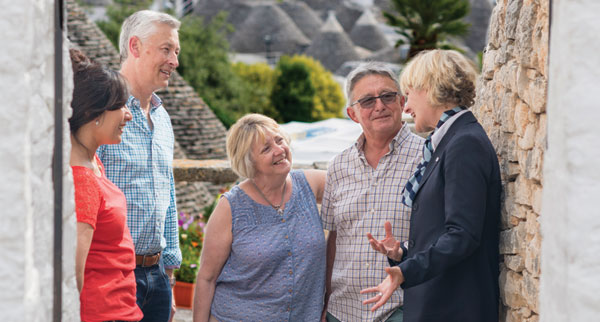
Ask the expert: Claire Brighton, director, Atas
• Be prepared to overcome misconceptions: People often think touring is for older travellers and adventure for younger ones, but there are tours suitable for all activity levels, age ranges and interests.
• Know your client: Find out their interests, hobbies or must-see attractions and match the tour to them.
• Don’t sell on price: These experiences are amazing and therefore they cost more money. Make the features of the tour, the exclusive experiences and comfort the key points.
• Be clear on what’s included: Each brand includes different elements, such as meals or entry to attractions, so familiarise yourself with these and explain them clearly.
• Learn and earn: Watch the New to Touring and New to Adventure videos on the Atas Facebook page, engage with Atas members directly, or email me on claire.brighton@touringandadventure.com.
Read more
Ask the experts: How to sell wellness holidays
The best slow-paced escorted tours
Tours through US national parks for any budget


